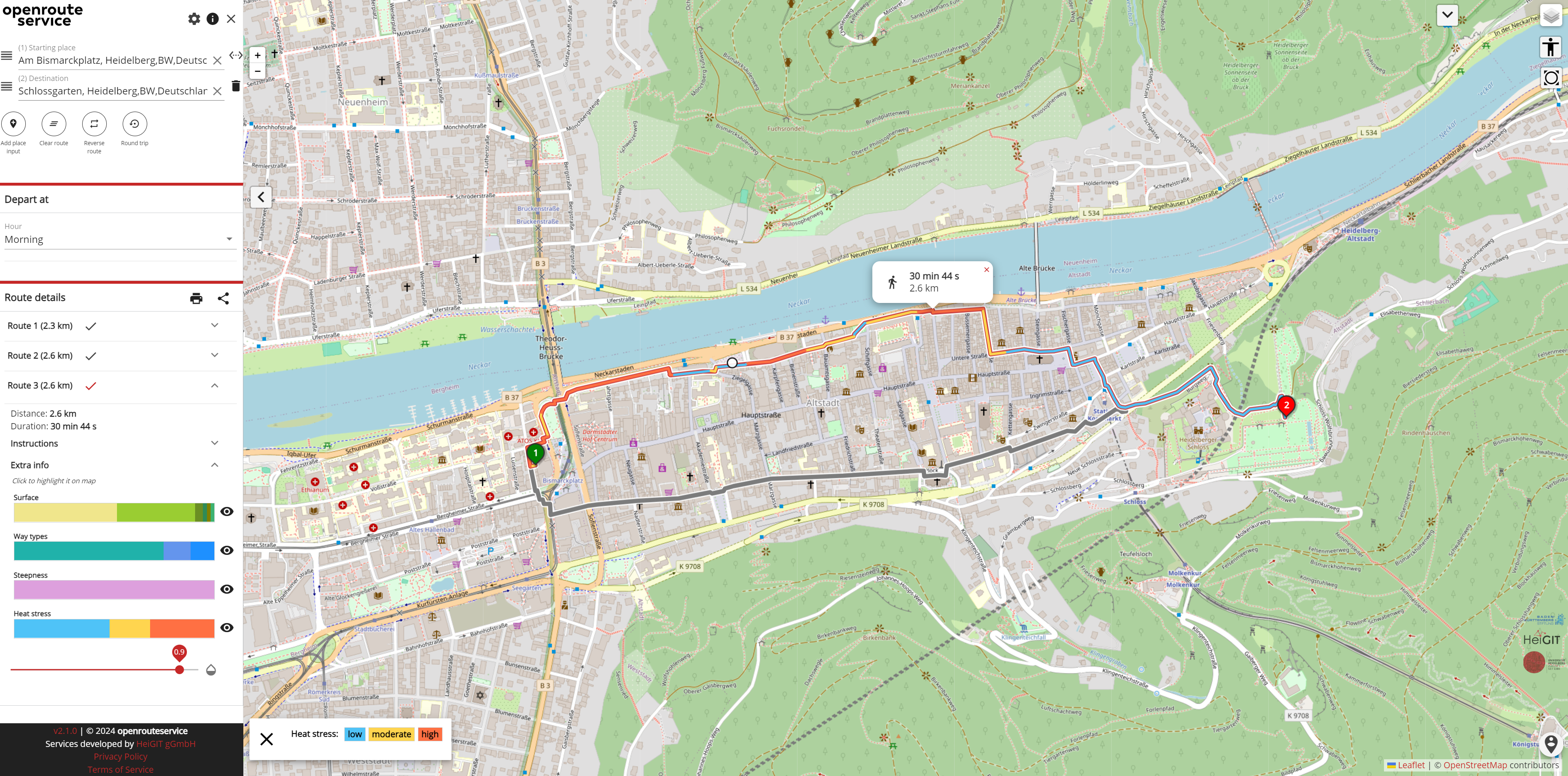Tag: TdLab
-

Staying Safe in the Heat: Routing App for Heidelberg
As summer temperatures soar, the health risks associated with heat stress become increasingly significant. This issue is particularly pronounced in urban areas such as Heidelberg and other cities, where dense building structures and limited green spaces exacerbate the problem. Vulnerable population groups such as the elderly, children and people with pre-existing conditions are especially susceptible…
-
A safe way through the heat: Transdisciplinary project HEAL makes everyday life easier for at-risk groups
(in Deutsch unterhalb) Aerial view of Heidelberg’s old town with the university square. This was a site of the study on climate change adaptation of public spaces (Foshag et al. 2020). (Photo: Kathrin Foshag). As part of a transdisciplinary collaboration, the Heidelberg Institute for Geoinformation Technology (HeiGIT), the GIScience research group and the TdLab Geography at…
-
TdLab Geography contributed to Heidelberg Physics Graduate Days
The “TdLab Geography” (Dr. Nicole Aeschbach) developed a “Decarbonization Lab” as part of the course “Climate Science and its Implications” taught by Prof. Dr. Werner Aeschbach at the Heidelberg Physics Graduate Days at Heidelberg University. About 50 doctoral students of the Heidelberg Graduate School of Fundamental Physics (HGSFP) worked on creative and effective measures as…
-
Kick-off meeting of BMBF/MOST project “ER3DS” at Heidelberg University
On Tuesday 26 March 2019, the 3DGeo Research Group of Prof. Bernhard Höfle and the newly founded Transdisciplinary Lab (TdLab) Geography (Dr. Nicole Aeschbach) hosted a workshop on “Emission Reduction in Smart Cities Using 3D Spatial Sensing and Analysis (ER3DS)” within the frame of the collaboration and exchange project ER3DS running from 2019 to 2020. The…
-
GIScience/HeiGIT and TdLab Geographie at german IPCC conference
GIScience will be present with two participants (Nicole Aeschbach, TdLab Geographie) and Sven Lautenbach (HeiGIT) at the german IPCC conference. Our contributions aim at highlighting the potential of GIScience and transdisciplinary research for climate change adaptation and climate change mitigation. Examples are the german climate protection map, green or pleasant routing (e.g. meinGrün ) and…


